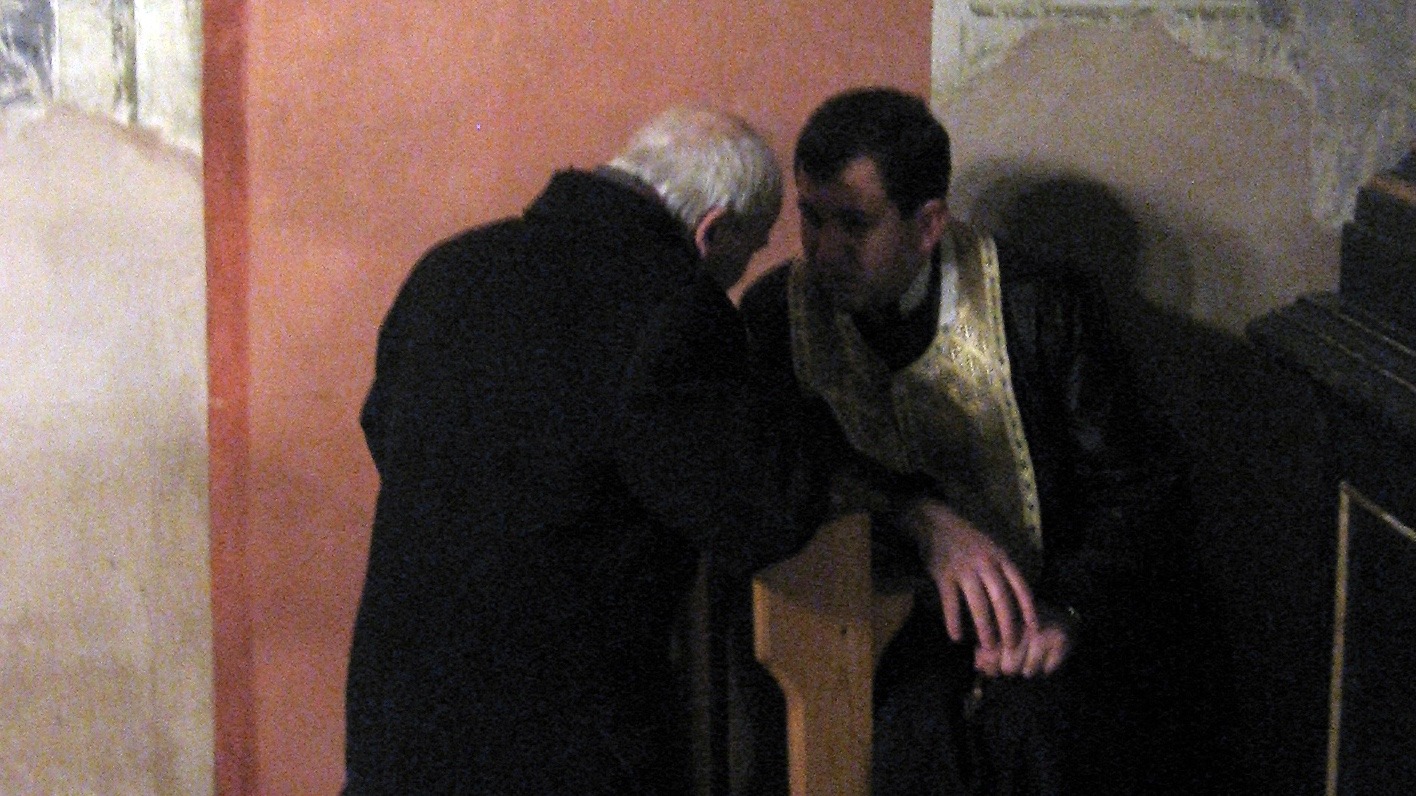
uppose you owed a debt you could not repay. Suppose further that my father is a very wealthy man, and because you are a good family friend, he decides to pay off this debt for you. He entrusts the money to me to pass on to you. I give you the money, and you pay the debt. In an immediate sense, I gave you the money; in an absolute sense, however, the money came from my father. He paid your debt, not me. He just did so through me, as an intermediary.
That is how Catholics view the sacrament of penance. Priests, of themselves, do not forgive sins. God alone does, acting through the priest, through the sacrament.
So when an anti-Catholic says, “Hey, you know, priests are only men, they can’t forgive sins, only God can,” the right answer is, “Yes, we believe that too.”
However. It is important to add that a priest’s authority to forgive sins comes from God. We find this in John 20:21–23:
Then said Jesus to them again, Peace be unto you: as my Father hath sent me, even so send I you. And when he had said this, he breathed on them, and saith unto them, Receive ye the Holy Ghost: Whose soever sins ye remit, they are remitted unto them; and whose soever sins ye retain, they are retained.
When Christ says, “I am sending you,” he is giving them a commission. He is giving them authority. When he breathes on them and says, “Receive the Holy Spirit,” he is giving them power. And then he tells them that the authority he is giving them is the authority to forgive sins.
Priests have this authority because Christ gave it to them. But the forgiveness of sins originates in God.
St. James says, “Confess your sins to one another.” Go to confession! This is not some weird idea superimposed on Christianity later; it’s right there in the New Testament. (The King James has it “confess your faults, but the Greek word ἁμαρτίας, hamartias means “sins,” and the KJV translates it that way every other time it is used in the New Testament. Only in James 5:16 does it translate it “faults.” I find that curious.)
But the Catechism of the Catholic Church (§1441) makes it clear: “Only God forgives sins.” We already know this. “But,” the Catechism continues in §1442, “he entrusted the exercise of the power of absolution to the apostolic ministry” (that is to say, the priesthood). On this point, the Catechism cites 1 Cor. 5:18: “All things are of God, who hath reconciled us to himself by Jesus Christ, and hath given to us the ministry of reconciliation.”
Pope St. John Paul II, in his apostolic exhortation on the sacrament of penance, Reconciliatio et Paenitentia, tells us once more what the Catechism has:
God is always the one who is principally offended by sin—Tibi soli peccavi–and God alone can forgive. Hence the absolution that the priest, the minister of forgiveness, though himself a sinner, grants to the penitent is the effective sign of the intervention of the Father in every absolution and the sign of the “resurrection” from “spiritual death” which is renewed each time that the sacrament of penance is administered.
The Church says that God gives priests the authority to forgive sins. The Church says that God acts through the sacrament of penance, just as he acts through every other sacrament. But it is no objection to say, “Only God forgives sins.” We know that.
Discover more from To Give a Defense
Subscribe to get the latest posts sent to your email.